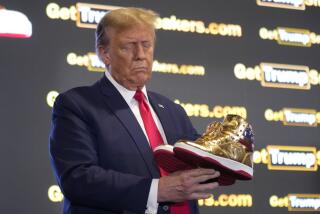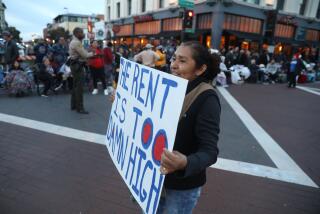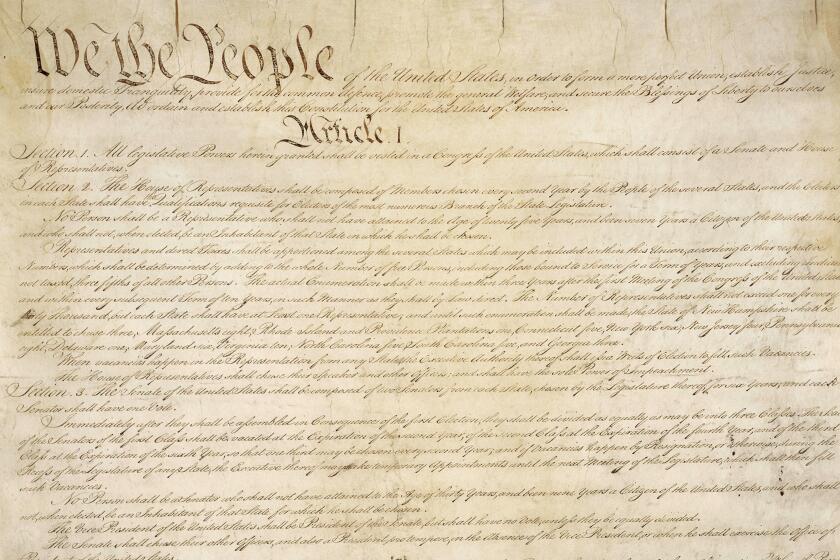Whither President Bush?
Today’s question: Why did President Bush wait so long to take a public leadership role on the credit crisis? Does he deserve any of the blame directed at him by the candidates? Previously, Kuttner and Foster debated what Washington should do , the effect of presidential politics on economic policy, , Barack Obama’s and John McCain’s economic plans and the state of the U.S. financial system.
Bush’s deregulatory ideology is to blame
Point: Robert Kuttner
It is well known that George W. Bush has been out of his depth for his entire presidency. That’s why Dick Cheney has been the first vice president in the history of the republic to be surrogate president, and why Donald Rumsfeld got an open field to conduct Iraq policy for so long.
So it is hardly a surprise that Treasury Secretary Henry Paulson has run the show on the bailout, with necessary help from Fed Chairman Ben Bernanke. The contrast with a real leader, like Franklin D. Roosevelt, makes you weep.
But that hardly gets Bush off the hook. It was he who appointed officials who were inept or corrupt, and sometimes both. And it was Bush who misgoverned with an overarching ideology of deregulation. All of his “regulatory” appointees were enablers of that now-discredited dogma.
And until his recent deathbed conversion, the dogma of deregulation was fully shared by John McCain. He may have been a maverick some of the time on other issues, but he voted the Bush party line on letting Wall Street run wild.
If McCain were to get elected, I suppose there would be one small comfort. Sarah Palin is no Dick Cheney. But the choice does not need to be overweening or underperforming. Our next chief executive, and his vice president, need to govern in the public interest.
American Prospect founder Robert Kuttner’s new book is “Obama’s Challenge: America’s Economic Crisis and the Power of a Transformative Presidency.”
Bush was fully engaged -- in the background, where he belonged
Counterpoint: J.D. Foster
Presidents don’t fight wars or build highways. They have generals and highway departments to do that. Similarly, presidents don’t get in the way of the experts when a financial crisis breaks. That’s the Treasury secretary’s job.
A Treasury secretary wears many hats. Through a budget lens, Treasury appears to be the IRS plus a few other ancillary functions. A Treasury secretary also serves as an administration’s primary representative when dealing with other countries’ economic ministers -- participating in conferences and summits ad nauseum.
But recent events remind us that these are secondary to the secretary’s foremost job as the federal government’s chief financial-crisis manager. Recall that Bob Rubin’s early missteps as Treasury secretary in the Clinton administration were quickly forgotten in light of his deft handling of the Mexican and Asian financial crises.
Today’s financial turmoil far exceeds anything Rubin or any of his predecessors faced in the post-war era. Not a bank or a firm but the entire global financial system is at risk. It was time to break the glass and unleash Secretary Paulson, crisis manager, and his powerful partner, Bernanke at the Fed. While a poor salesman, Paulson is truly expert in these matters -- unlike some of his predecessors, who would have been outclassed in this crisis.
What, then, is the role of a president in such a crisis? First, he must take great care not to meddle in details or undermine the Treasury secretary’s stature. A secretary lacking broad guidance and the clear backing of the president is an empty suit.
Second, at the appropriate time the president must explain to the American people what is happening, what may yet come and what their government can do about it. No sugarcoating of the facts or exaggeration of the threats will do.
There will be time enough in the months and years ahead for political finger-pointing. Some in and out of Congress are addicted to the political Kool-Aid and cannot forbear their partisan shots. At times like these, the president must rise above partisan politics. A great strength of America is that a president who takes the high road will usually find fellow travelers of both parties to join him in finding the best solutions.
President Bush has taken the high road. House Financial Services Committee Chairman Barney Frank (D-Mass.) and Senate Banking Committee Chairman Christopher Dodd (D-Conn.) did likewise, setting aside their partisan differences, as did many of their Democratic and Republican colleagues.
Some will accuse President Bush of waiting too long to engage personally and publicly. Apparently these accusers believe a president is only engaged when making a televised speech. I believe the president was fully engaged, yet in a way that carefully preserved the Treasury secretary’s effectiveness as chief economic-crisis manager. When the time was ripe for the president to address the American people, he did so, and has done so frequently since.
As has every president before him, President Bush has made his share of mistakes. But attacking him in this instance strikes me as just another example of indiscriminate political harping.
J.D. Foster, PhD, is the Norman B. Ture Senior Fellow in the Economics of Fiscal Policy at the Heritage Foundation.
More to Read
A cure for the common opinion
Get thought-provoking perspectives with our weekly newsletter.
You may occasionally receive promotional content from the Los Angeles Times.






